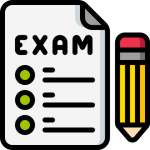
Tailored Revision Techniques for Each Major UK Exam Specification
Navigating the world of GCSE Computer Science can be challenging, especially given the nuances of each major UK exam specification. At CSUK's ReviseCS, we understand these distinctions. In this guide, we'll walk you through tailored revision techniques to help you ace your exams, no matter which board you're sitting for.

1. Know Your Specification
Before diving into revision, ensure you're crystal clear on your specification. Each board has distinct themes and focal areas. Access the respective courses on ReviseCS to get a grasp of your syllabus.

2. AQA: Emphasis on Theory and Practical Skills
Technique: Allocate equal time to both. Use interactive presentations for theoretical parts and dive into hands-on quizzes to sharpen practical skills.
Tip: Regularly test your understanding with aiAnna, focusing on the software development aspects.

3. OCR: Dive Deep into Algorithms
Technique: This board delves deeper into algorithms. Practice pseudocode and flowchart creation. Use the note-taking facility to jot down complex logic or unique algorithms.
Tip: Engage with the infinity quiz on algorithms and programming. Filter by OCR for targeted revision.

4. Edexcel: A Balanced Approach
Technique: Edexcel has a fair balance between theory and practicals. Utilise flashcards for definitions and key terms, and interactive questions for hands-on practice.
Tip: Make use of online exam questions specific to Edexcel, ensuring you're familiar with the exam format.

5. Eduqas: Emphasis on Software and Systems
Technique: Focus on understanding software components and system architectures. Videos on ReviseCS can be particularly helpful here.
Tip: Seek feedback from aiAnna on written responses about system development and programming concepts.

6. Customise Your Revision
ReviseCS provides tools to customise your learning:
- Personalised Quizzes: Use the infinity quiz to generate questions based on your weak areas and exam board.
- Performance Analytics: Regularly check your dashboard. If there's a consistent weak area, allocate more revision time to it.

7. Past Papers are Gold
No matter the specification:
Technique: Dedicate the last phase of your revision to past papers. This gives a real sense of the exam format and types of questions.
Tip: Use the self-marking facilities on ReviseCS to assess your answers to practice written exam questions. It gives immediate feedback, allowing for quick rectifications.

8. Mental Prep for All Specifications
Every exam board demands a clear, calm mind:
Technique: Incorporate relaxation techniques into your revision schedule. Whether it's deep breathing exercises or short walks, ensure your mind is at ease.
Tip: Mental health support articles on ReviseCS can offer guidance on managing stress and exam anxieties.
In conclusion, while each UK exam board for GCSE Computer Science has its quirks, with tailored techniques and the plethora of resources on ReviseCS, you're set for success. Remember, it's not just about studying hard, but also studying smart. Happy revising!
